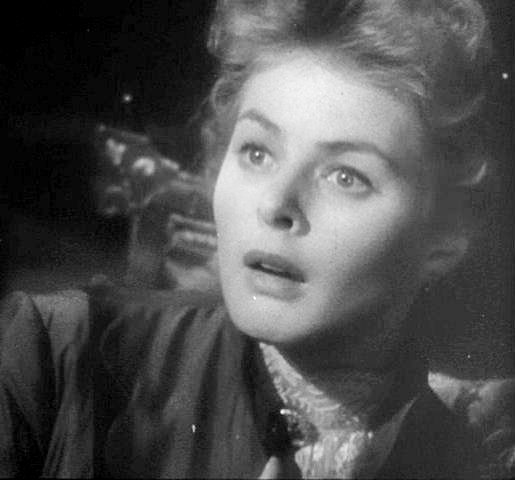by
O'Neil De Noux
Errors in books are like fleas. And some of my books are infested with them. I tried Advantage, Advantage II, Revolution. They don't work.
I first spotted these bastards in my books published by Zebra (Kensington) but no one called me on them because there was no email back then. Hell, they didn't alter the books and after the publisher corrected the spelling of my name on the cover of the first book, I blew it off.
I noticed errors again after one of my short stories was selected and reprinted in a Best Of anthology. The femme fatale's eyes changed color midway through the story. I thought - how the hell did the editor do this - until I went back to my original submission version and I had done it. I checked the magazine that first printed the story and the editor there didn't catch the mistake either. That story has been published 5 times now and no editor or reader has ever caught the error. Then again, maybe the only six people ever read the story. Me and the editors.
On the rear cover of my LONE Hurricane Katrina novel, we spelled the name of the hurricane as Karina. No one noticed. Two years later, I did and quickly made the correction. One of the benefits of print-on-demand books is the ability to instantly correct all subsequently printed volumes. How did we miss that?
When we formed BIG KISS PRODUCTIONS, we gathered a number of people fed up with the way they were treated by traditonal publishers - writers, editors, copy editors, artists, artist models, photographers, publicists, literary attorney, literary agent and proof readers. We are responsible for the entire production of each publication. Everything we do is checked and rechecked at least 8 times by multiple people and there are STILL errors. Frustrating? Yes. Infuriating at times? Absolutely. But mistakes happen.
I find errors all the time in traditionally published books. It happens. No big deal. I know Mark Twain knew how to spell 'season' and Kate Chopin's editors know it is 'lullaby' and not 'lulaby'.
A reader once scolded me at a writer's event about two typos she found in my BATTLE KISS (a book of 320,000+ words). She said she expected perfection in a book that cost her $4.99. That's the eBook price. That's right - 5 bucks. I spend more than that for coffee these days.
I have come up with an re-usable answer to this question and I used it with that woman. I said, "We always leave a typo or two in every book. We follow the lead of persian rug makers who explain why they always drop a stitch in each rug because only Allah is perfect."
She asked what I meant by that. I repeated, "Only Allah is perfect." I then added, "Lisan al-Gaib." Her eyes went wide and she sat down. Didn't bother telling her "Lisan al-Gaib" has nothing to do with any real religion but is a phrase from Frank Herbert's great novel DUNE.
If you wanna talk grammar, call Cornac McCarthy.
"But he broke the rules," said in a whiney voice from the monkey gallery. "That's not the Queen's English."
Well, I don't use the Queen's English either. I don't even use English. I use a bastardized form of English called American English. And not Ivy League American. I use New Orleans American. If I don't remember the grammar rule, I make up my own rule. Bottom line - if you can undestand what the writer means to express - then what the hell are you griping about? This ain't grammar school. Writers are artists. Would you go into Picasso's studio and tell him those last few strokes should go another way?
Writer intrusion? Check out Thomas Harris's HANNIBAL or Harlan Ellison's brillant short story "The Deathbird" HUGO Award winner for 'Best Novelette' where he intrudes in a story about the end of the world with, "Yesterday my dog died." The author gives is a touching tale about his dog, which of course connects to the theme of the piece, but he INTRUDES.
"But it interrupts us. It reminds us this is a BOOK." Right. That's what you're holding in your damn hand (unless it's a Kindle).
That's all for now folks.
O'Neil De Noux
Persian rug. Lisan al-Gaib.
Errors in books are like fleas. And some of my books are infested with them. I tried Advantage, Advantage II, Revolution. They don't work.
I first spotted these bastards in my books published by Zebra (Kensington) but no one called me on them because there was no email back then. Hell, they didn't alter the books and after the publisher corrected the spelling of my name on the cover of the first book, I blew it off.
I noticed errors again after one of my short stories was selected and reprinted in a Best Of anthology. The femme fatale's eyes changed color midway through the story. I thought - how the hell did the editor do this - until I went back to my original submission version and I had done it. I checked the magazine that first printed the story and the editor there didn't catch the mistake either. That story has been published 5 times now and no editor or reader has ever caught the error. Then again, maybe the only six people ever read the story. Me and the editors.
On the rear cover of my LONE Hurricane Katrina novel, we spelled the name of the hurricane as Karina. No one noticed. Two years later, I did and quickly made the correction. One of the benefits of print-on-demand books is the ability to instantly correct all subsequently printed volumes. How did we miss that?
When we formed BIG KISS PRODUCTIONS, we gathered a number of people fed up with the way they were treated by traditonal publishers - writers, editors, copy editors, artists, artist models, photographers, publicists, literary attorney, literary agent and proof readers. We are responsible for the entire production of each publication. Everything we do is checked and rechecked at least 8 times by multiple people and there are STILL errors. Frustrating? Yes. Infuriating at times? Absolutely. But mistakes happen.
I find errors all the time in traditionally published books. It happens. No big deal. I know Mark Twain knew how to spell 'season' and Kate Chopin's editors know it is 'lullaby' and not 'lulaby'.
Kate Chopin, a Louisiana writer
A reader once scolded me at a writer's event about two typos she found in my BATTLE KISS (a book of 320,000+ words). She said she expected perfection in a book that cost her $4.99. That's the eBook price. That's right - 5 bucks. I spend more than that for coffee these days.
She asked what I meant by that. I repeated, "Only Allah is perfect." I then added, "Lisan al-Gaib." Her eyes went wide and she sat down. Didn't bother telling her "Lisan al-Gaib" has nothing to do with any real religion but is a phrase from Frank Herbert's great novel DUNE.
If you wanna talk grammar, call Cornac McCarthy.
"But he broke the rules," said in a whiney voice from the monkey gallery. "That's not the Queen's English."
Well, I don't use the Queen's English either. I don't even use English. I use a bastardized form of English called American English. And not Ivy League American. I use New Orleans American. If I don't remember the grammar rule, I make up my own rule. Bottom line - if you can undestand what the writer means to express - then what the hell are you griping about? This ain't grammar school. Writers are artists. Would you go into Picasso's studio and tell him those last few strokes should go another way?
Writer intrusion? Check out Thomas Harris's HANNIBAL or Harlan Ellison's brillant short story "The Deathbird" HUGO Award winner for 'Best Novelette' where he intrudes in a story about the end of the world with, "Yesterday my dog died." The author gives is a touching tale about his dog, which of course connects to the theme of the piece, but he INTRUDES.
"But it interrupts us. It reminds us this is a BOOK." Right. That's what you're holding in your damn hand (unless it's a Kindle).
Kindle Paperwhite
That's all for now folks.
www.oneildenoux.com






























